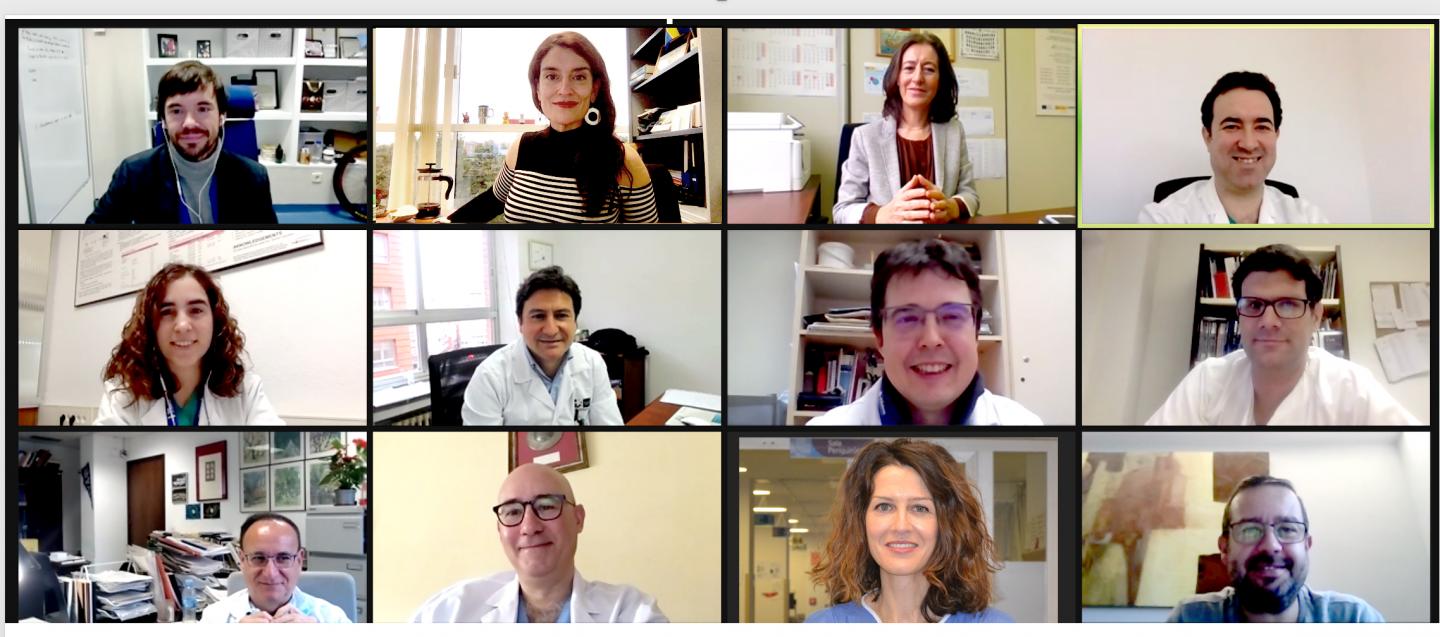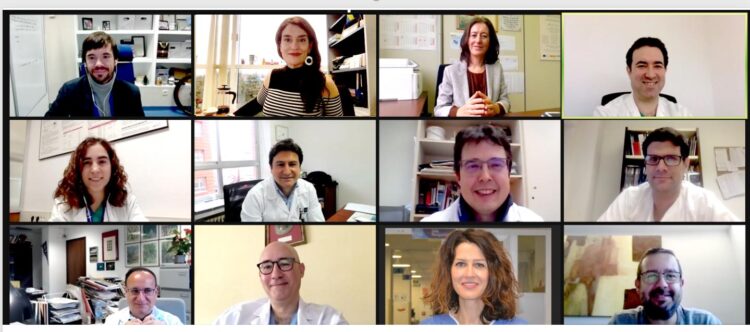
Credit: CNIO
Last January 25th, the bylaws of the National Brain Metastasis Network (or RENACER, its acronym in Spanish) were signed and the network’s first meeting was held. To date, 11 Spanish hospitals have joined the network to create a collection of human samples to further research into brain metastases, to improve both their diagnosis and treatment. Through this project, initiated and coordinated by the Brain Metastasis Group and the Biobank of the Spanish National Cancer Research Centre (CNIO), samples from the member hospitals will be collected and stored.
With prior consent from the patients, surgeons will collect tissue samples during surgical interventions which, after being confirmed as surplus of clinical samples by pathologists, will be sent to the CNIO biobank, where they will be processed and stored to be made available to the Network and the entire research community. The objective of RENACER is to carry out basic and clinical studies that help to advance the development of therapies for these metastases.
Between 10 and 30% of all cancer patients develop brain metastases, especially from breast, lung and skin tumours. Two of the main challenges of cancer research lie in understanding why some tumour cells manage to overcome the strong defensive barriers of the brain against metastases and to develop therapies to block this phenomenon.
“We will work towards the development of therapies specifically aimed at treating brain metastases, to make progress in the comprehensive and inclusive treatment of cancer,” explains Manuel Valiente, Head of CNIO’s Brain Metastasis Group and research director of RENACER. “We will characterise patient samples molecularly and see if the results can be translated into pharmacological assays. We need to start tackling the personalised treatment of metastases.”
RENACER will adhere to the highest bioethical and quality standards to ensure the proper use of the samples. Furthermore, it will ensure that patients have a say in it, in a novel practice that is beginning to be adopted by European centres and biobanks called patient and public involvement. “This is the next step in the modernisation of biobanks,” says Eva Ortega-Paíno, Scientific Director of the CNIO biobank, principal investigator of the project and managing director of RENACER. “The patient is the one who feels and lives the disease, and therefore his or her voice must be represented.”
In addition to Ortega-Paíno and Valiente, the following persons make up RENACER’s management board:
- Clinical head of neurosurgery: Ángel Pérez, Head of the Neuro-Oncology Section at the 12 de Octubre University Hospital;
- Clinical head of medical oncology: Juan Manuel Sepúlveda, Coordinator of the Multidisciplinary Unit of Neuro-Oncology at the 12 de Octubre University Hospital;
- Clinical head of pathology: Santiago Ramón y Cajal, Head of the Pathological Anatomy Service at the Vall d’Hebron Hospital;
- Patient manager: Begoña Barragán, President of the Spanish Group of Patients with Cancer (GEPAC);
- Head of Bioethics: Pilar Nicolás, member of the ethics committee of the Institute of Health Carlos III (ISCIII) and professor at the Faculty of Law of the University of the Basque Country.
Currently, RENACER consists of the Hospital 12 de Octubre (Madrid), which has played an essential role alongside CNIO researchers in the organisation of participating centres, the Vall d’Hebron University Hospital (Barcelona), the Hospital Complex of Navarre (Pamplona), the Burgos University Hospital, the Bellvitge University Hospital (Barcelona), the Toledo University Hospital Complex, the Virgen del Rocío Hospital (Seville), the Río Hortega University Hospital (Valladolid), the La Princesa University Hospital (Madrid), the Álvaro Cunqueiro Hospital (Vigo), and the Albacete University Hospital Complex.
Some months ago, Manuel Valiente also launched BrMPanel, an international platform that centralises brain metastasis cell lines and is used by researchers from all over the world. The balance less than a year later is very positive: “New groups have joined,” he explains, “from the initial 60 cell lines we have gone on to almost 90, and we are also going to carry out the first major epigenetic characterisation of this type of cell lines. This will be led by Manel Esteller, an expert in the field of epigenetics and director of the José Carreras Leukaemia Research Institute (IJC). The fact that the BrMPanel is progressing so well shows that collaborative initiatives with a strong multidisciplinary background, such as the one we are now starting with RENACER, are needed to advance basic and clinical research in an increasingly efficient manner.”
The RENACER project has already obtained funding for the next 3 years from the Institute of Health Carlos III through its national call for proposals for Biobank and Biomodels Platforms.
###
Hospitals wishing to join RENACER can contact:
Eva Ortega-Paíno: [email protected]
Manuel Valiente Cortés: [email protected]
About the CNIO
The CNIO is a Spanish public institution dedicated to the research, diagnosis and treatment of cancer, and affiliated to the Carlos III Institute of Health (Ministry of Science, Innovation and Universities). It is one of the 10 leading cancer research centres in the world (Scimago Institutions Rankings World Report; Nature Index) and covers the entire R&D and Innovation spectrum, from basic research to the clinic, with a view to transferring the results quickly and efficiently to the National Health System and to the pharmaceutical and biotechnology market.
The CNIO has an Experimental Therapeutics Program that covers the initial stages of the development of drugs directed against the therapeutic targets its scientists are working on. Some of the CNIO’s compounds have been licensed to international pharmaceutical companies. In addition, the CNIO is actively involved in ‘open innovation’ programs of international pharmaceutical companies, which has resulted in an influx of more than 25 million euros into the CNIO in the past 6 years. Finally, three spin-off companies have emerged from the CNIO, which have also allowed patients to benefit from the centre’s developments. These data reflect the Institution’s commitment to innovation and technology transfer and illustrate the importance of public-private collaboration for the advancement in the diagnosis and treatment of disease.
Moreover, the CNIO strives to bring science closer to society through initiatives like CNIO Arte, a project that gathers scientists and artists in the creation of a work of art based on scientific research, or CNIO Friends, a philanthropic platform where individuals, companies and organisations can make contributions to help cancer research at the Centre; the funds raised have facilitated the establishment of a competitive ‘CNIO Friends’ International Contract Programme to engage research talent.
Media Contact
Vanessa Pombo
[email protected]





